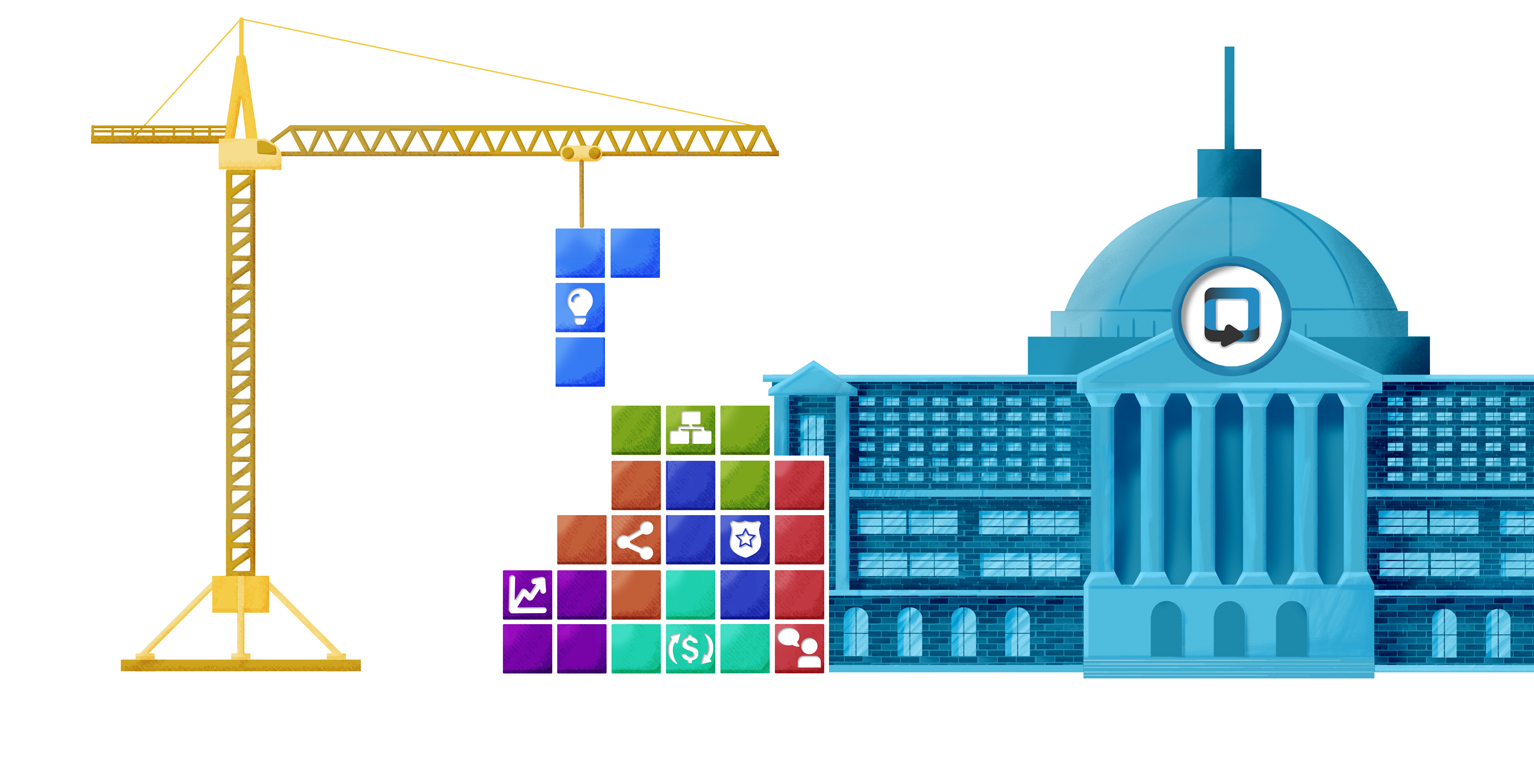Transforming City Government, One Data-Driven Decision at a Time
City governments across the US have been under a spotlight in recent years, credited with groundbreaking initiatives and managing through unforeseen upheaval in everything from natural disasters to a global pandemic. Sometimes at odds with, or even forgotten by, federal government officials, cities have forged ahead, finding new and valuable ways to serve local constituents.
At the heart of this innovation is a better understanding of data and a renewed commitment by city administration officials to track and report progress on initiatives and programs. Bolstered by programs such as Bloomberg Philanthropies’ What Works Cities (WWC), more municipalities than ever before are leaning into greater transparency, improved services and more efficient use of budgets thanks to sweeping digital transformation.
A recent report by Deloitte highlights the effectiveness of a data-driven mindset within city governments. City officials shared the many ways data has improved the work of governing – everything from accelerating emergency response times, making better budget decisions, more effectively selecting and awarding city contracts and a more equitable delivery of city services.
To date, WWC’s program has focused on four main areas: performance management, public engagement, releasing data and taking action. In each area, cities around the US have experienced positive results, including better communication and engagement with citizens, improved ability to process and share data with residents and greater insights to modify programs based on data analytics.
As successful as the program has been, cities involved are ready and eager to take it to the next level. In the Deloitte report, local government officials expressed an interest in moving forward to address more complex issues facing constituents today – everything from racial inequality to economic insecurity, as well as building greater trust and engagement with residents.
Following a particularly tumultuous year with COVID-19, and a renewed, real-world understanding of the critical role data plays in helping to create better, more effective local governments, city officials are ready for more. In response, StrategyBlocks designed the optimum framework for municipal strategic thinking and execution.
Our research helps address many of the most pressing needs of city governments now and in the future, as defined by city officials themselves. Such as:
Advancing a bottom-up approach to better learn from residents and engage their feedback and support
According to the Deloitte report, a bottom up approach is critical to advancing equity and improving relations with residents. Seeking grassroots engagement with residents is one challenge, the other is how to collect and analyze the data from those interactions and then take that data and build out an appropriate strategy. One of the benefits of the StrategyBlocks approach is that it readily funnels data input from multiple sources, and helps to visualize how that data can impact strategic initiatives.
Collaborating and sharing data with other public administrations, such as counties, states and other cities
The ability to share data and learn from other government officials is a challenge for most cities but also a critical step toward reaching broader goals. Unlike a corporation, city governments don’t need to be in competition with one another – when one finds success, that success can be studied and replicated in jurisdictions all over the state or even the country. What’s more, in many cases residents are impacted by multiple jurisdictions, and a collaboration between cities can yield the greatest outcome for residents.
This level of coordination and support requires strong communication, easily discoverable data and an understanding of the initiatives and activities that yielded the best results. Our visual approach to strategy takes these needs into consideration, making it easy to create a recognizable link between activities and outcomes, as well as the risks associated with each.
Creating standards of excellence and key metrics for specific city services
Any time a standard of excellence can be codified, it helps to ensure that results are repeatable. This is particularly helping for local governments who often find very similar service offerings and challenges across departments and municipalities. As more and more cities effectively transform the way they use data, the next logical step is to create a best-practice approach. This is the ultimate goal within the StrategyBlocks platform. Our visual system of cascading blocks creates an easy-to-understand system that can be tweaked with new data and replicated to ensure similar results.
The future of municipal government is data-driven. Cities who have already embraced this approach are enjoying measurable success and demonstrating that it can be effectively done, no matter the resources available.
We welcome the opportunity to speak to your city government and take a firsthand look at how other municipal governments are tackling strategy. Click here to select a time for a brief demo, and let us help you meet your goals in 2021 and beyond.




Leave A Comment